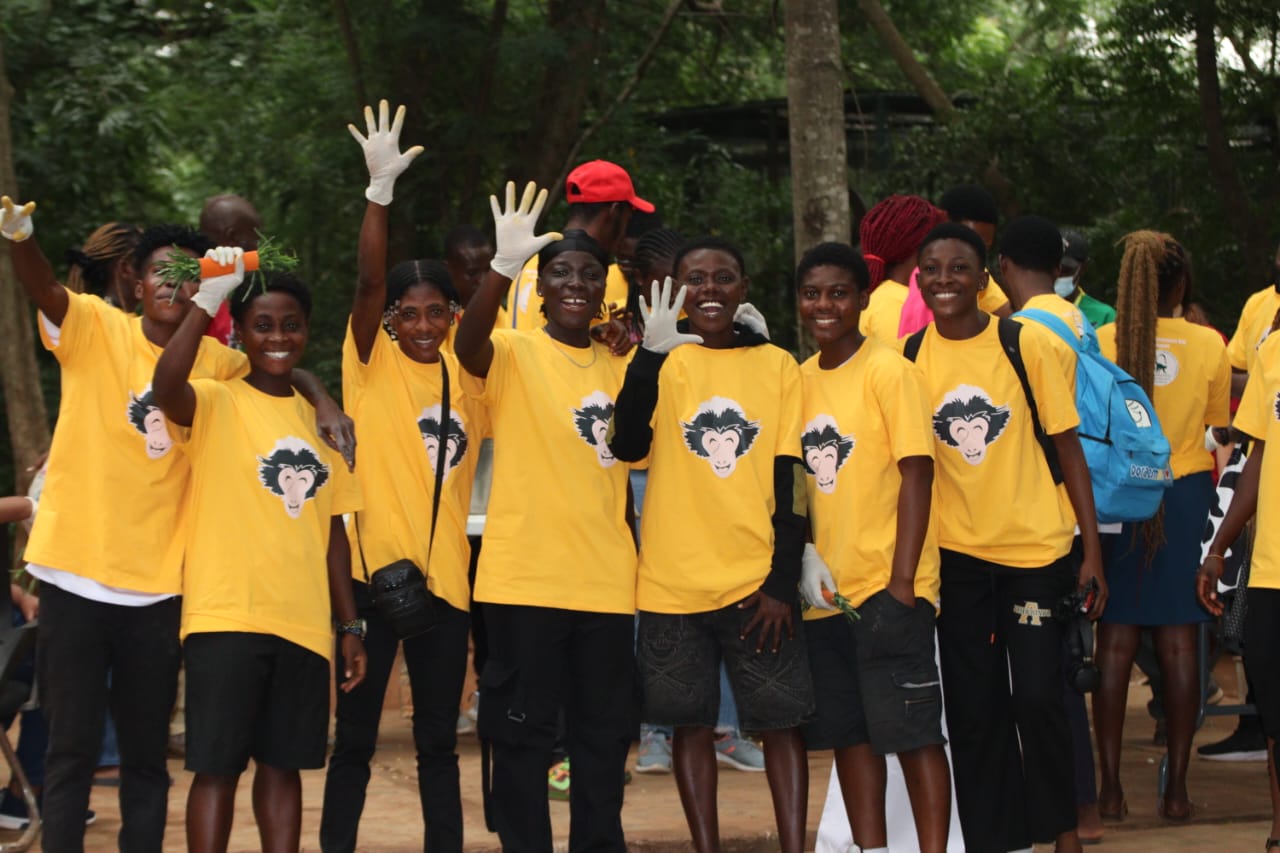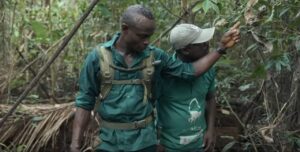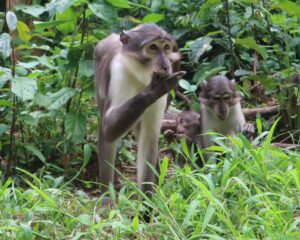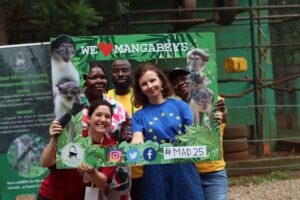WAPCA Highlights Mangabey Awareness on International Primates Day

By Isaac Okyere
As the world marks International Primates Day on September 1st, the West African Primate Conservation Action (WAPCA) is renewing its call to protect endangered primates.
With 60% of primate species worldwide at risk of extinction, WAPCA is emphasizing the importance of conservation efforts.

Primates, known for their intelligence and social behavior, play a vital role in maintaining healthy ecosystems. However, many species face significant threats, including habitat loss, poaching, and the illegal pet trade.

WAPCA, a local NGO working in Ghana and Côte d’Ivoire, is dedicated to protecting threatened primates and their habitats.
The organization focuses on critically endangered species, such as the Miss Waldron’s red colobus, white-thighed colobus, Roloway monkey, and the white-naped mangabey.
In celebration of Mangabey Awareness Day (MAD 2025) on August 1st, WAPCA highlighted the vital connection between human lifestyles and the survival of the white-naped mangabey.
The event, held under the theme “Sustainable Consumption for Primate Conservation: Connecting Everyday Choices with Biodiversity Protection,” emphasized the importance of responsible consumption in protecting primates.

WAPCA’s efforts are made possible through the generous support of sponsors and partners, including Decathlon, Print Lounge, Centre for Biodiversity Conservation Research, and the European Union.
The organization acknowledges the growing role of collaboration and partnership in championing environmental awareness.
As biodiversity continues to decline in West Africa, WAPCA and its partners have pledged to expand community outreach in forest-edge communities. These efforts aim to raise awareness about primate conservation and reduce threats such as illegal logging and hunting.
WAPCA emphasizes the importance of protecting primates and their habitats, highlighting that sustainable consumption is not a passing trend, but a necessity for the future of primates, people, and the planet.
The organization calls for stronger collaboration among communities, researchers, government agencies, and civil society to build a future generation committed to conservation and sustainable environmental practices.
For more information, please contact:
West African Primate Conservation Action (WAPCA)
+233 26 394 7433
nuria.badiella@wapca.org





